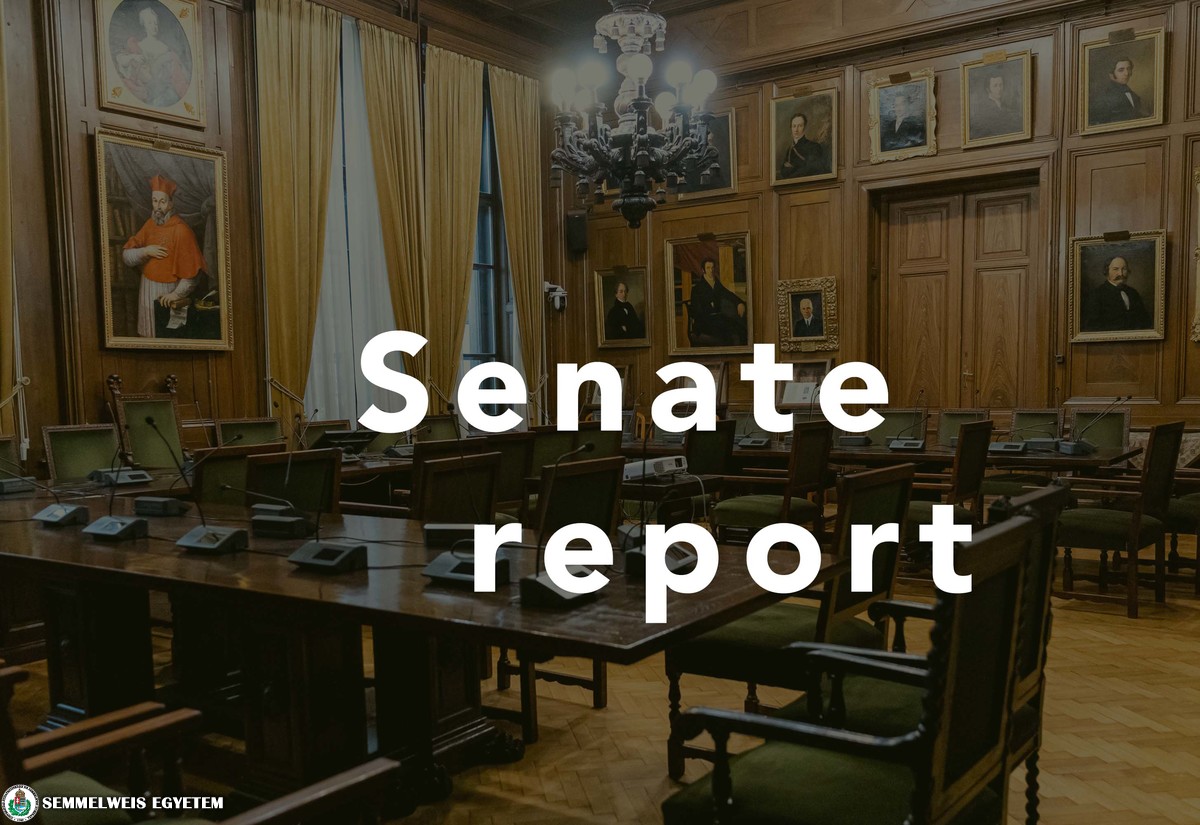
Overview of Recent Strategic Developments at Semmelweis University
Semmelweis University in Hungary continues to reinforce its position as a leading institution in health sciences and medical education. The recent Senate meeting held in May highlighted significant advancements in university governance, new academic offerings, financial growth, and strategic investments. For prospective students and academic professionals, understanding these developments offers insight into Semmelweis University’s commitment to excellence in healthcare education and research.
Insights from the May Senate Meeting at Semmelweis University
Approval of the University’s 2024 Annual and Benefit Reports
The Senate officially approved the university’s comprehensive reports for 2024, underlining successful fiscal management and strategic growth. The financial report showcased a significant increase in revenues, reaching HUF 243 billion, up from HUF 192 billion in 2023. This robust growth stems from increased activity in patient care services and a focus on expanding healthcare operations.
As a result, the university generated an after-tax profit of HUF 7.8 billion, which was reinvested into infrastructure, research, and educational programs. The strategic management of assets and a focus on operational efficiency contributed heavily to these positive outcomes. For students, staff, and healthcare partners, these financial strengths translate into enhanced facilities, cutting-edge research opportunities, and better healthcare services.
Expansion of Academic Programs and New Courses
The Senate approved the launch of innovative academic courses designed to meet the evolving needs of healthcare professionals. Notably, a new elective titled ‘Introduction to Clinical Research’ will be introduced in the 2025/26 academic year. This two-credit course, delivered in English, aims to equip students with foundational knowledge about clinical research methodologies, fostering greater participation in scientific conferences and postgraduate training.
Additionally, the university is establishing a course titled ‘Criminal and Moral Evaluation of Health Services,’ which focuses on ethics, legal standards, and issues surrounding corruption in healthcare. This curriculum response underscores the university’s dedication to producing ethically conscious practitioners capable of navigating complex moral landscapes in healthcare settings.
Institutional and Organizational Enhancements
Strategic organizational changes were also discussed. The establishment of the Rector’s Program Office aims to streamline rectorial activities and improve administrative efficiency. The creation of the Directorate of the Pediatric Center Clinical Block exemplifies the university’s commitment to consolidating services post-merger and enhancing patient care delivery.
These organizational adjustments not only optimize operational capacity but also bolster research and clinical training, directly benefiting students and healthcare services.
Financial and Asset Growth at Semmelweis University
Continued Revenue Growth and Asset Development
The year 2024 marked a milestone for Semmelweis University with notable increases in income from patient care, rising by 30%. This growth reflects the successful integration of services from merged clinics, such as the Rehabilitation Clinic and Neurosurgery Department, expanding the scope and quality of healthcare provided.
The university’s assets surged from HUF 223 billion to HUF 276 billion, supported by successful investments and acquisitions. This financial strength allows for ongoing renovation projects, infrastructure upgrades, and the acquisition of advanced medical equipment.
Investment in Infrastructure and Innovation
Approximately HUF 20 billion was allocated for infrastructure development, aiming to improve clinical facilities and research centers. These enhancements ensure the university remains at the forefront of medical innovation, attracting top-tier researchers, faculty, and students.
Academic Excellence and Policy Updates
Amendments in Regulations to Support Student Success
Legislation concerning student awards was amended to recognize outstanding students, including the Dr. István Szívós Athlete Medical Student Award, which now includes a HUF 250,000 cash prize for recipients. Such recognition incentivizes excellence and encourages participation in sports and academic activities.
Furthermore, adjustments in Study and Examination Regulations help facilitate continuous study pathways, reducing interruptions for students who face examination failures. These policies demonstrate the university’s proactive approach to student welfare and academic flexibility.
Enhancement of doctoral and research regulations
The doctoral regulations were amended to clarify publication criteria, requiring a greater emphasis on impact factor journals and simplifying supervision processes. These changes aim to elevate the university’s research standards and simplify administrative procedures for doctoral candidates.
Introduction of New Elective Courses and Ethical Training
A notable addition is the elective course titled ‘Criminal and Moral Evaluation of Health Services,’ focusing on issues of corruption, ethics, and legal standards in healthcare. National Protective Service (NVSZ) and the Department of Education Management jointly developed this course, reflecting the university’s leadership in ethical medical education.
This course will provide students with vital insights into legal and ethical standards, preparing them to uphold integrity in their future medical careers.
Recognition of Academic Leadership and Appointments
The Senate approved the conferment of professor emeritus titles and reviewed applications for leadership roles, including two deans. These appointments recognize distinguished academic contributions and strengthen the university’s leadership pipeline.
Implications for Prospective Students and Healthcare Professionals
Semmelweis University’s strategic developments and new program launches illustrate its dedication to fostering excellence in healthcare education and clinical practice. The focus on research, ethics, organizational efficiency, and financial robustness ensures a high-quality learning environment and advanced patient care services.
For students considering joining the university, these strategic investments and policy enhancements promise a dynamic academic environment rooted in innovation, ethical standards, and clinical excellence.
Conclusion: Semmelweis University’s Commitment to Healthcare Advancement
The recent Senate meeting exemplified Semmelweis University’s ongoing commitment to advancing healthcare education, research, and organizational efficiency. With substantial financial growth, new academic programs, and strengthened governance, the institution is well-positioned to meet the challenges of modern medicine. Prospective students, faculty, and healthcare collaborators can look forward to a future where Semmelweis University continues to lead in Hungary and beyond.
To learn more about academic programs and scholarship opportunities at Semmelweis University, visit their official website. Explore your opportunities now and join a leading institution dedicated to healthcare excellence.

